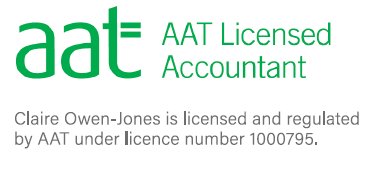Podcast transcription with introduction removed
What paperwork should I keep to document my income?
Now, in theory or in an ideal world, you would keep the back-up documents for every entry of your bookkeeping, but I am aware that in most instances, that’s not realistic, so let’s break it down a little bit into sort of sections. The first one is your income. Now, hopefully you’re using either some kind of accounting software or at least a Word or PDF template for your invoicing. What I would do is just make sure that you’re saving copies of those. If clients are paying you through a card reader such as iZettle, that should automatically be categorising and saving that sales information. If you go out and maybe you’ve got a trade stall or you go out and visit your clients and they pay you in cash, try and keep some kind of document to back up that income, whether that is just a pad that you take with you.
Obviously ideally you would be using accounting software and you’d be able to generate an invoice from your phone, but do try to keep back-up of every bit of sales that you have, especially something that’s cash or if someone pays in a personal account and you then transfer it across, just to make sure that you can always show HMRC quite clearly where your income has come from.
What receipts will HMRC expect me to keep?
Next are your expenses. Hopefully most of your expenses are going through your bank account. If HMRC were ever going to have an investigation into your tax return and they were going through expenses, there will be some that they probably won’t question, and that’ll be things that are obviously related to your business. This can be things like business insurance or your software. Now, with those, obviously if you can keep the invoices that go with them, that’s great, but I wouldn’t worry quite as much. The things that HMRC are going to ask you, or if you’ve got an accountant preparing your tax return, the things that they will ask you for are anything that could be personal, so have a dual use, or things that just aren’t clear at all.
Things that have a dual use, that could be, let’s say for example, you go to Asda and you pick up some stationery. You will only see from your bank account that you’ve bought something from Asda, so keep the receipt so you can prove that that was a business expenditure and not part of your weekly shop. The same if you were to, say, buy an iPad from John Lewis, these are things or places where you can buy business things, but you can also buy personal things, so keep those receipts if you can.
The ones that we would have no idea of are generally if you buy things from platforms such as Amazon or eBay, or maybe you pay for something through PayPal, or it could be that you’ve withdrawn some cash and then made some cash purchases. I would definitely try and keep hold of all of those invoices, because those are the ones that your accountant and HMRC will zoom in on, but how you keep the records is up to you. If you find that you’ve got lots of paper receipts, it could be that you go as retro as keeping a shoebox in your office and you keep the receipts in there, just to keep them, so if anyone does question what the expenses are, you will be able to find them.
If you find that a lot of your suppliers email you their invoices, you could just keep an email folder, and so in your inbox, whenever someone sends you their invoice, you just transfer it into that box there.
Obviously another option, if you’re using accounting software, is to actually attach the receipt or the invoice to the bank transfer. Obviously this is the ideal situation, because you’ve then got everything in one place, but you may find that this is a little bit time-consuming. What I generally try to suggest is choose one method and stick to it, because there’s kind of nothing worse than doing a couple of different methods a little bit of the time, so then if 18 months later your accountant does ask you what you bought from John Lewis, you may not remember, and equally you won’t know where that receipt it. Did they email it to you? Did you attach it to the software? Was it a paper one in your arch file or your shoebox at home? Try to choose one that you think you’re able to keep up with.
How long do I need to keep hold of my paperwork for?
HMRC will expect you to keep records for up to six years after the tax year has completed, so don’t do your tax return and then pop everything in the bin, do try and keep hold of it.
That’s kind of it, really, in terms of your records. As I said, make sure you’ve got copies of all of your income, so you can prove all the income that you’ve received, and then in terms of your expenses, anything that’s obviously business, try and keep, but don’t sort of worry too much if you forget, but anything that could be personal or is not clear from the bank, do try and keep copies of, whether that is, as I said, in an arch file or a shoebox, whether that’s a file in your inbox or on your computer, so that you can find things if need be. Try and keep hold of them for six years, which feels like a very long time, but that is HMRC’s window to looking into your expenses.







